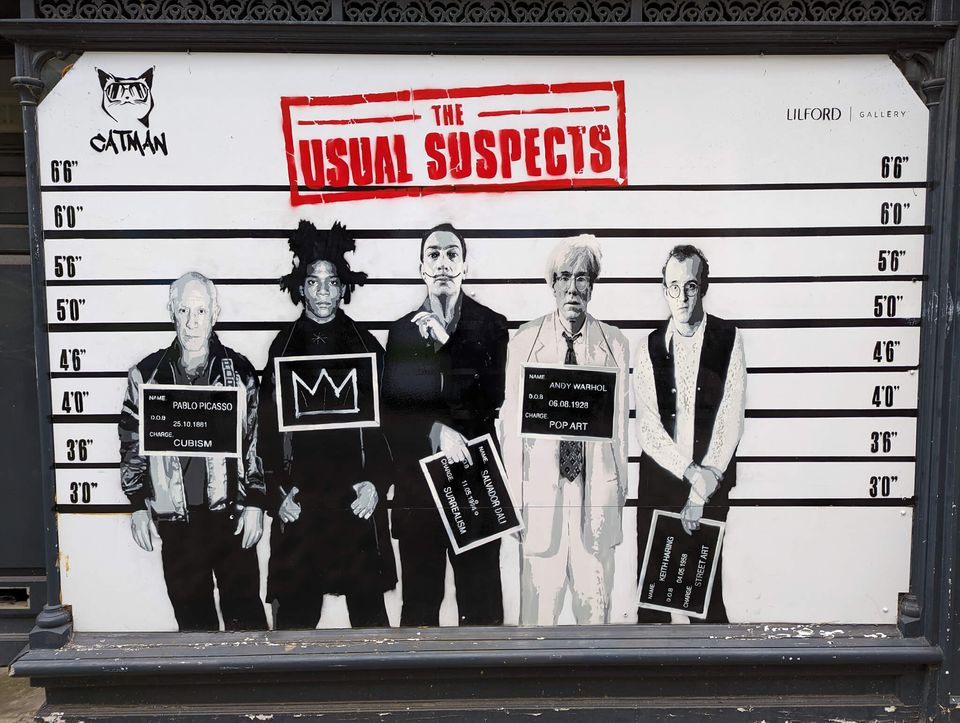America's Archduke Ferdinand Moment (Newsletter 061)

Greetings fellow travelers.
The power to change the world starts with one individual. Although we assume change will be for the better, people can absolutely make things worse. Sometimes, a single individual triggers a chain of events that with hindsight we can see sets us onto a dark path. America is closer to such a turning point than we realize.
Before we explore that cheery thought, here's some Klugne news that you all will appreciate. Or at least anyone who's worked in IT or administered a web site. Effective immediately, this blog now comes with a sitewide search function as well as commenting for members. If you are so inclined, you can now post a comment directly to an article. Hooray! Back to today's topic.
You've probably heard something about Archduke Franz Ferdinand of Austria, heir presumptive to the throne of the Austro-Hungarian empire. You may recall your history lesson that the Archduke's assassination in Sarajevo in 1914 is considered the immediate trigger for World War I. You're probably less familiar with his assassin, Gavrilo Princip, but it is Gavrilo that interests us today.
Gavrilo Princip was a hotheaded teenager, 19 at the time of his rash murder of the Archduke and his wife Sophie. Born into a poor Bosnian Serb family, he went to Sarajevo in his early teens for school. He became "politically aware" upon attending gymnasium, the equivalent of a preparatory high school, and joined the Young Bosnia movement.
Politically aware is a euphemism for saying that Gavrilo's exposure to romanticism, anarchism, revolutionary socialism, and communist ideas, among others, radicalized him. He and his fellow students sought Bosnia's liberation from Austro-Hungarian rule and wanted to see all southern Slavs unified in one nation. Spoiler alert: their actions to change the world did not have the desired outcome. A month after the assassination, Austria-Hungary declared war on Serbia and WWI was underway.
Why the history lesson? For me it's a reminder that powerful forces tip and can be nudged from balance by single actions.
It's because we are once again awash with young radicals who believe passionately in their issue. So passionately that they are willing to do anything to achieve their goals. Firebomb a women's choice center in support of abortion rights? No problem.

Here's how the radical group Jane's Revenge puts it (from their June 15 blog):
We have demonstrated in the past month how easy and fun it is to attack. We are versatile, we are mercurial, and we answer to no one but ourselves. We promised to take increasingly drastic measures against oppressive infrastructures. Rest assured that we will ... it’s open season, and we know where your operations are. The infrastructure of the enslavers will not survive. We will never stop, back down, slow down, or retreat.
Everyone with the urge to paint, to burn, to cut, to jam: now is the time. Go forth and manifest the things you wish to see.
How about leaking a draft Supreme Court decision, something that has never happened in America's history? Why not?
This leak, in turn, led directly to Nicholas John Roske, our own would-be Gavrilo Princip. He was apparently irate by the idea that the Supreme Court might put the question of abortion rights back to the individual states to regulate, and further that they might reaffirm individual gun ownership rights. So, he traveled from California to the door of Brett Kavanaugh's house, where he allegedly told law enforcement he wanted to kill a Supreme Court Justice to "give his life a purpose."
The question Americans should be asking themselves is what if? What if Mr. Roske had gotten past the front door? What if someone else passionately committed to their cause actually succeeds in upsetting the delicate balance? I suspect that much like the Bosnian Serbs found, there will be dramatic unintended consequences to such drastic actions.
We're potentially a single ideologically motivated attack way from finding out how close to a tipping point we are. I personally find this terrifying. The systems and institutions we count on to keep things running are neither monolithic nor impervious. They are actually quite fragile.
It's all the scarier when we consider that the Supreme Court has been the only properly functioning arm of the Federal government for decades. Both the Executive (the President and his cabinet-level appointees) and the Legislature (Congress) have shown themselves more than willing to violate the Constitution: from Executive Orders that plainly exceed the President's authority, to unaccountable Administrative Agencies whose rules flout due process, to laws passed by Congress that are promptly successfully challenged as unconstitutional.
It has repeatedly fallen to the Supreme Court to halt unconstitutional advances by whichever party temporarily grabs hold of the reins of power. Can we wonder that the stakeholders most recently on the losing side of these constitutional skirmishes keep looking for ways to subvert the Supreme Court?
Until recently I thought the worst proposed offense to the Supreme Court's integrity was packing the court, i.e. expanding the size of the court when your party is in power and having your President nominate enough justices to gain a majority. Then came personal attacks on individual Justices and their spouses as a way to weaken the court's legitimacy as a whole. These both take time and would not be immediately effective. Thus, I now see the most radically dangerous approach would be forcibly altering the court's composition by the Gavrilo Princip method.
This week's Moral Letters give us reason to hope, but not to hope blindly. In Moral Letters 121 On Instincts And Archetypes, we explore the wonderful fact that humans are successful in part because we have the propensity for learned behavior as a species. That is, we change our behavior in response to our environments. The downside to humans is that we can also override our positive instincts and cause harm to ourselves and others.

Moral Letter 122 On Being A Nonconformist explores nonconformism, which is primarily a phenomenon of youth. We turn to nonconformism when we first start adult thinking and push back against unwanted responsibility. For our purposes, it is important to realize that some people never learn society's lessons, much less their own. If we can forgive youth's lack of humility because they also lack experience, we must draw the line at letting the arrogant ignorant dictate the solutions.

Unfortunately, the most determined nonconformists, or anarchists, are not so easily deterred. Let's be careful fanning these flames when their fervor suits our narrow interests. Otherwise, we might get what this radical fringe apparently wants, which is to burn everything down.
Be well.
Hit reply to tell me what's on your mind or write a comment directly on Klugne. If you received this mail from a friend and would like to subscribe to my free weekly newsletter, click here.







Member discussion